21 Nov 2025
Xi’an Jiaotong-Liverpool University this year achieved its highest-ever medal tally at the International Genetically Engineered Machine (iGEM) competition, the world’s most influential synthetic biology event for students.
Four undergraduate teams from XJTLU won two gold medals and two silvers, with one team ranking in the top 10 worldwide. Three teams were also nominated for Best Project in their respective tracks.

Founded by the Massachusetts Institute of Technology (MIT) in 2003, iGEM is an interdisciplinary competition integrating knowledge in life sciences, chemistry, mathematics, information science, engineering, and computer science. The 2025 edition – hosted in Paris, France, from 28-30 October – attracted more than 400 teams from universities across the globe, including Harvard, Stanford, MIT, Tsinghua University, and Peking University.
Young scholars from XJTLU’s Wisdom Lake Academy of Pharmacy, School of Science, School of Advanced Technology, School of Mathematics and Physics, and XJTLU Entrepreneur College (Taicang) proposed innovative solutions to a range of global challenges.
XJTLU-Science-China’s project – a symbiotic bacterial delivery platform for targeted therapy of triple-negative breast cancer – earned a gold medal; was named Best New Composite Part, Best Oncology Project, and Best Wiki Nomination; and ranked in the global top 10 for undergraduate projects.
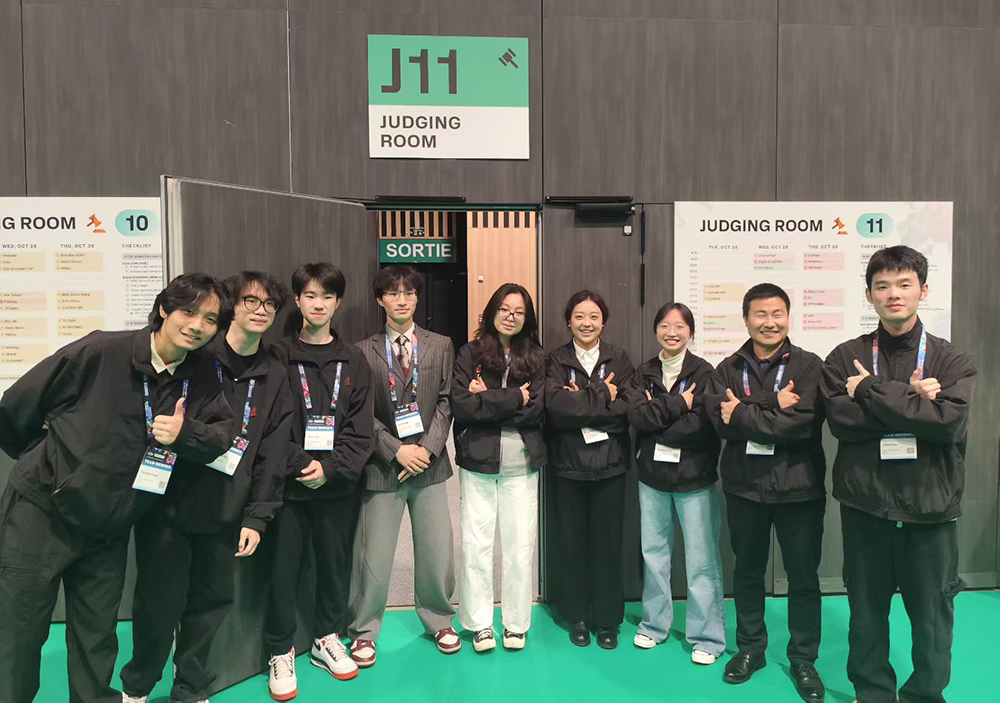
XJTLU-Science-China
“With no specific targeted drugs currently available, patients with this type of cancer face high recurrence rates and poor prognoses. Our aim was to find a breakthrough,” says team member Yaqi Zhang, a Year Three student of Biological Sciences.
Drawing inspiration from a study showing that breast cancer cells harbour bacteria with remarkable selective enrichment, the team proposed using gene-editing to modify symbiotic bacteria that can recognise and enter tumour cells, enabling targeted drug release.
Symbiotic bacteria, which naturally reside on human skin, exhibit low immunogenicity, high biosafety, and excellent host compatibility, making them suitable as drug carriers. For the project, the team developed a technical roadmap encompassing strain selection, genetic modification, invasion assays, and drug‑delivery validation.
“The biggest challenge was gene editing the Staphylococcus bacteria,” says Tianran Chen, a Year Three student of Biopharmaceuticals. “It possesses a highly robust defence mechanism that can recognise and cleave any foreign DNA lacking specific methylation marks. Without bypassing this barrier, no genetic modification is possible.”
To overcome this challenge, the young researchers began “pre‑treating” DNA molecules in strains of the bacteria Escherichia coli to acquire the correct methylation marks, to “trick” the Staphylococcus defence system. They eventually identified the JM110 strain as the optimal host, and through extensive testing engineered bacteria that could achieve entry in more than 99% of tumour cells within six hours.
The team also developed systems to ensure that the bacteria can survive only in the low-oxygen environment of a tumour, reducing the risks of non-specific invasion.
Positive impacts
Team XJTLU‑China received gold in the “Conservation” track for its project O! Super Carpet, which aims to tackle the ecological disasters caused by the seaweed algae Ulva prolifera along the coast of Qingdao, in China’s eastern Shandong province.
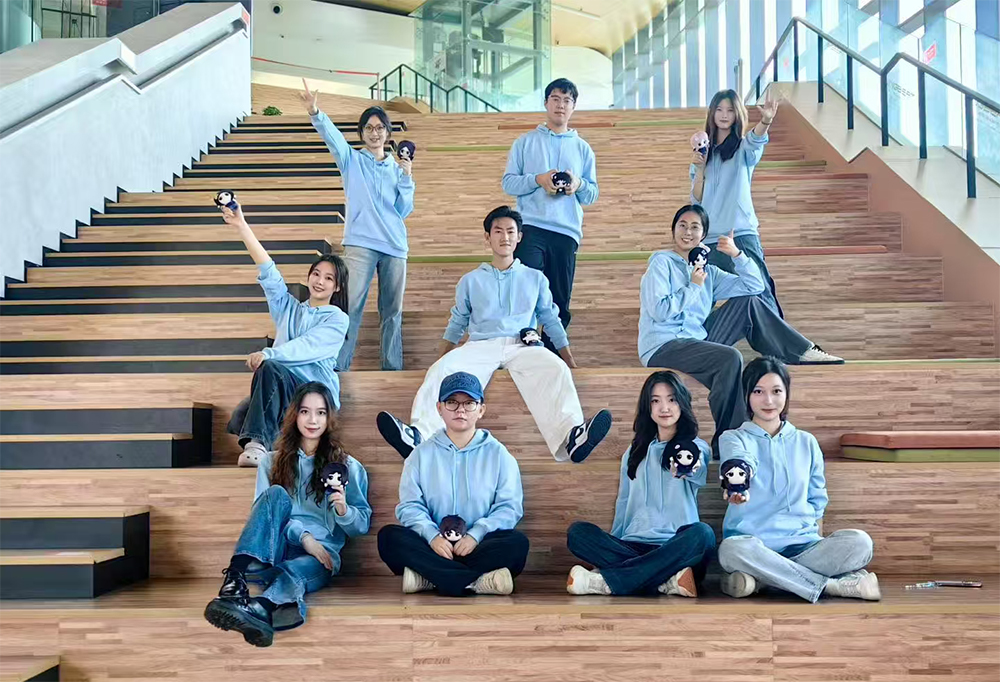
XJTLU-CHINA
Inspired by the spells of boy wizard Harry Potter, the team proposed a management system using engineered bacteria with three core modules: Ennervate, which empowers the bacteria to survive in high‑salinity seawater; permanent sticking, a recognition mechanism to capture Ulva spores; and Avada Kedavra, an environmentally responsive genetic circuit to prevent horizontal gene transfer, safeguarding the marine ecosystem.
“We’re a group of idealists,” says team captain Bingbing Zhao, a Year Three student of Biological Sciences. “The issue of Ulva cannot be solved overnight, yet we wanted to give it a try. Any positive impact on the world is worthwhile.”
Also making the honour roll were XJTLU‑Software, whose project Pure‑Era clinched silver and a nomination for Best Project in the “Software and AI” track, and XJTLU‑AI‑China, which claimed silver with Plaszyme, a plastic‑degrading enzyme prediction platform powered by artificial intelligence.
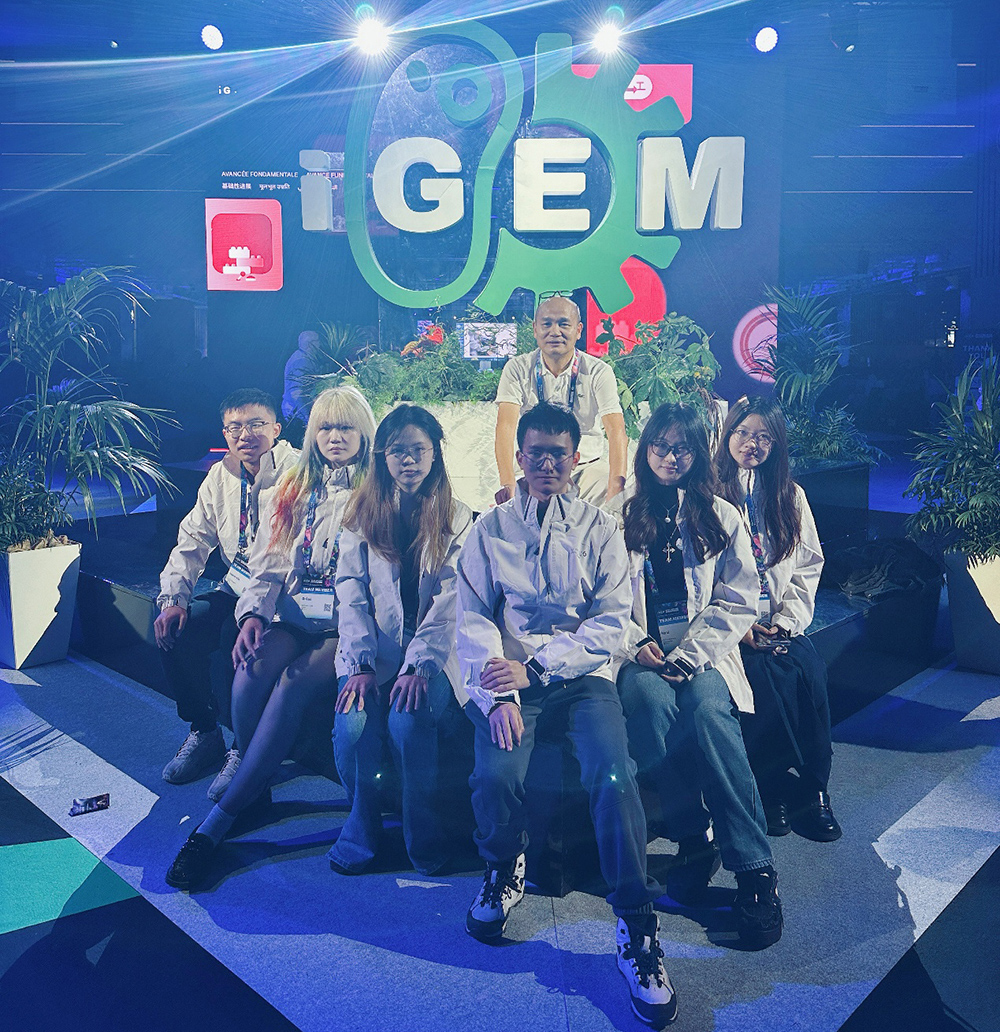 XJTLU-Software
XJTLU-Software
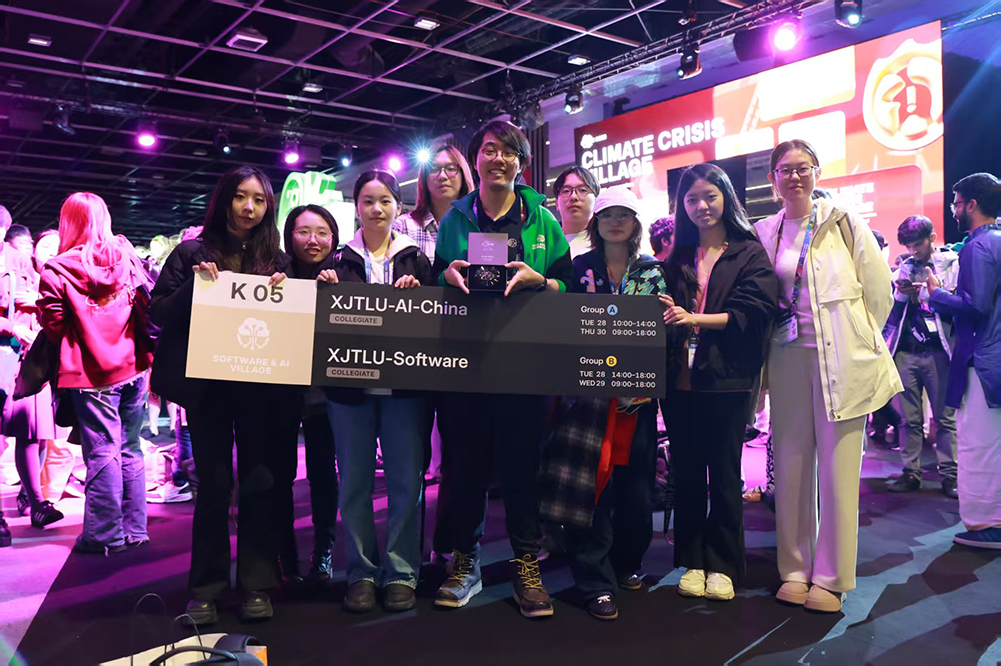
XJTLU-AI-China Team
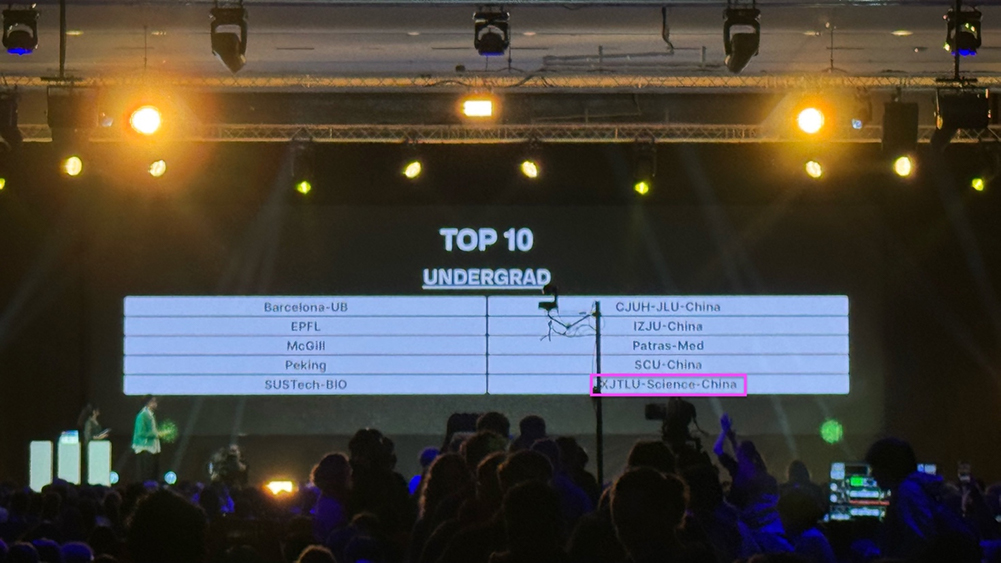
Announcement of iGEM 2025’s top 10 undergraduate projects
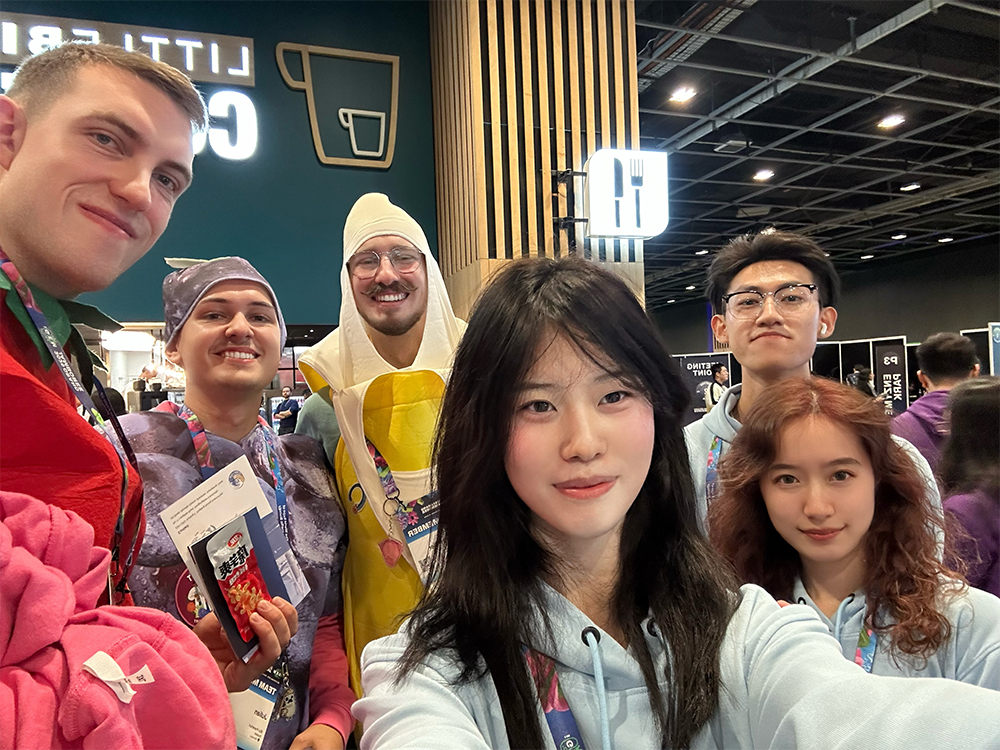
XJTLU students with peers from other universities at iGEM 2025
By Luyao Wang, XJTLU Wisdom Lake Academy of Pharmacy
Translated by Xiangyin Han
Edited by staff editor
21 Nov 2025








